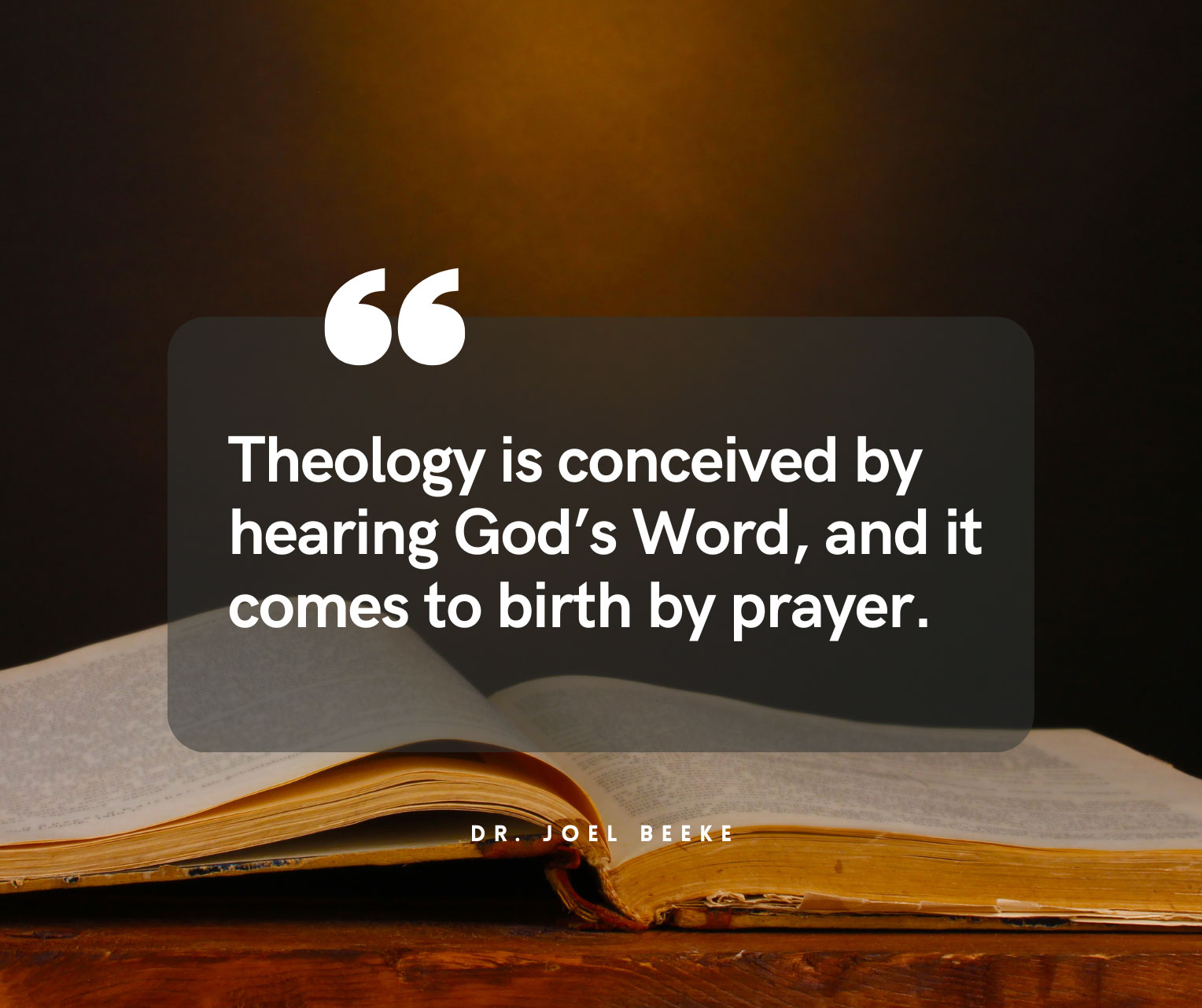
Theology is conceived by hearing God’s Word, and it comes to birth by prayer. “Show me thy ways, O Lord; teach me thy paths” (Ps. 25:4). Our systematic theology was certainly born of prayer, beginning when God taught us by grace to “call upon the name of the Lord” (Rom. 10:13).”…
Anyone who has spent more than a little time reading the Bible has experienced this need: How can I understand unless someone guides me? Though the basic message of the Bible is startlingly clear, parts of the Scriptures present deep and perplexing truths. The search for understanding leads us to the hard work of close reading, careful thinking, fervent praying, and conferring with Christians wiser than we are. Then we are enabled to crystallize our thoughts about God in clear and penetrating insights, and are better equipped to serve him. This is the process of “doing theology,” that is, using our minds to engage with the truths of God’s Word.
Theology is a word that mystifies some and intimidates others. Some even say that doing theology is a waste of time. This response often arises from an outlook controlled by materialistic naturalism—the belief that only those things we can see and handle are real. Theology introduces us to an unseen world, one far greater and more enduring than the world we see and touch. This means that doing theology is the most important task that any human being can undertake. In fact, as R. C. Sproul (1939–2017) said, “Everyone’s a theologian.” We cannot escape theology. Even the atheist’s stout rejection of God is a theological statement. The question is whether our theology is true or false.”
Excerpt From
Reformed Systematic Theology, Volume 1
Joel R. Beeke








